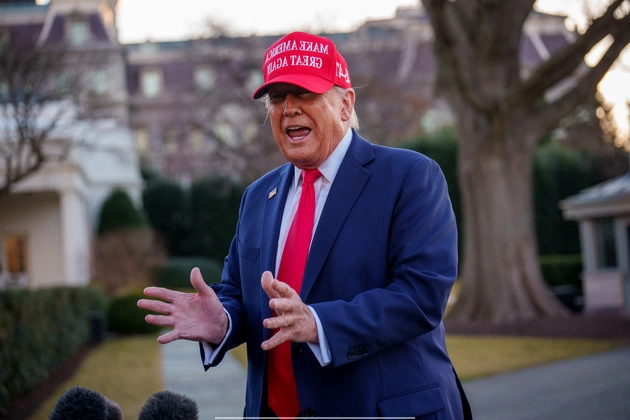
Understanding GOP Responses to Trump’s Ukraine Talks
Republican lawmakers are facing a significant dilemma in crafting a unified response to President Donald Trump’s recent interactions regarding Ukraine’s future in relation to Russia. The varying reactions within the GOP highlight the challenges policymakers encounter as they interpret and defend the administration’s positions to European allies.
Following a call between President Vladimir Putin and Trump that hinted at favorable terms for Moscow without involving Ukraine initially, concerns among GOP members have escalated. Defense Secretary Pete Hegseth’s statements on potential concessions for Kyiv, including border adjustments and NATO membership, have stirred controversy.
Senate Armed Services Chair Roger Wicker expressed unease over Hegseth’s demands, emphasizing Ukraine’s entitlement to international promises. This discord underscores the broader tension within the party regarding its stance on arming Ukraine and negotiating with Russia.
Contrasting Views within the Republican Party
While some Republicans like Rep. Brian Fitzpatrick advocate for a more conciliatory approach towards Ukraine, others, including Vice President JD Vance, emphasize a tougher stance against Russia. The divergent opinions within the GOP reflect a nuanced debate on the best course of action to address the ongoing conflict.
Despite disagreements, there is a shared commitment among GOP members to prioritize Ukraine’s interests and explore peaceful resolutions. However, differing strategies on how to achieve this goal have led to internal divisions and strained messaging.
International Reactions and Implications
The Trump administration’s statements have elicited strong responses from European leaders, with criticisms ranging from diplomatic missteps to concerns about lasting peace. Ukrainian President Volodymyr Zelenskyy’s cautious optimism towards Trump’s leadership underscores the delicate balance between US-Russian relations and Ukraine’s security.
Democrats have been quick to criticize the administration’s handling of the situation, highlighting the need for clarity and consistency in US foreign policy. The public discourse surrounding Trump’s approach to Ukraine reflects broader concerns about international stability and US credibility on the global stage.
The evolving dynamics within the GOP regarding Ukraine and Russia reveal deep-seated divisions on foreign policy and national security. As lawmakers navigate these complexities, the future of US engagement with Ukraine and its implications for regional stability remain uncertain.















